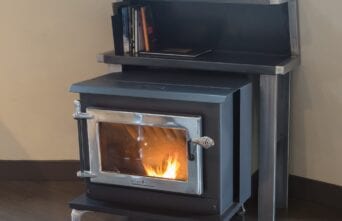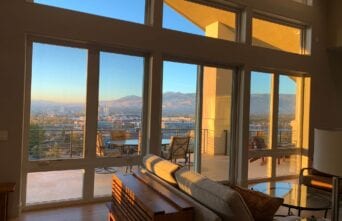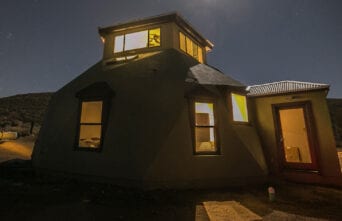Solid Surface Counter Myth Busters
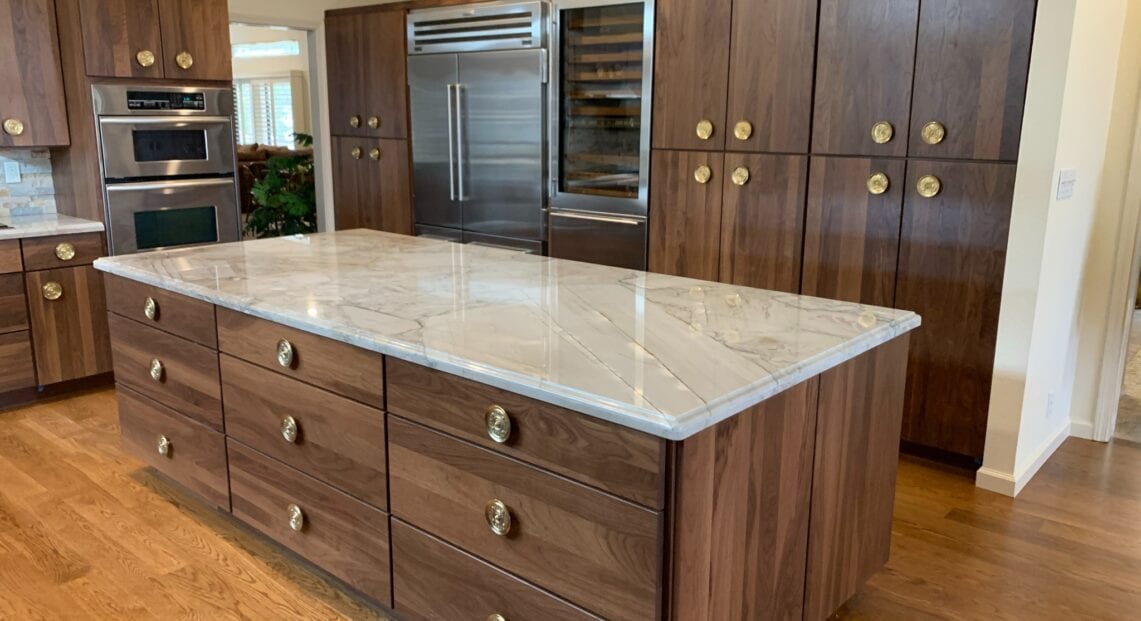
Lots of hype has been circulated over the past half-decade or so about the evils of granite versus the virtues of fabricated solid surface counter tops. I’ve designed using granite, marble, and man-made products for the better part of my career and will happily use any of them, if the situation calls for it. That said, I have watched these same counter tops age with the home and have seen no problems with any of the natural stone that we’ve installed. The same can not be said for any of the man-made materials with one exception, IceStone.
By man-made materials, I’m referring to solid surface material such as Corian, Caesarstone, Zodiaq, Ice Stone, Vertrazzo, and concrete that requires a factory process to create.
Here are 3 myths I’d like to bust:
- Natural stone stains easily. Man-made stone does not. FICTION!
Natural stone must be sealed properly when it’s installed. Some stones are so dense, they don’t necessarily require a sealer but for the $50 or so that a good sealer costs, I believe it’s worth the investment with all counter tops we install. The ONLY sealer to use is what is called a penetrating sealer. It seeps deeply into the stone, and protects it from the inside out. NEVER use what is called a “Topical” sealer. I’ve seen this type of product sold at all the big box home improvement stores. Topical products sit on top of the stone, yellows with time, gets waxy and sticky.
A sealer we’ve been very happy with is: StoneTech- Impregnator Pro. After washing the counter with soap and water, spray on the revitalizer diluted with 50% water and then wipe off with a clean cloth. You can use a sponge scrubber or even steel wool (for hard water stains around the faucets) to clean your counter. Granite has survived a millennia, it will survive you. When sealed properly, you can leave greasy pizza boxes or cooking oil bottles on it over night or over the weekend. It doesn’t stain. If it hasn’t been sealed, don’t leave anything on it. My sister’s counter suffered a nasty oil stain from a banana peel left over night by our dear grandma before it had been sealed.
Marbles, on the other hand, are a bit different. They are very soft and porous. I don’t recommend them on a kitchen counter, with the exception of a “Rain Forest” style which is in between granite and marble.
Once stone is sealed properly, it requires almost no maintenance. There are products that can be used to keep your stone beautiful and continually sealed called revitalizers. Granite does not need to be resealed if a revitalizer is used every so often. Marble.com has a comprehensive article about all of this.
IceStone does require sealing but holds up better than any other man-made surface we’ve worked with.
2. Man-made resin products such as Zodiac or Caesarstone don’t burn while granite can. FICTION!
NEVER put a hot pot off of the cook-top on a man-made surface. It can and will melt. I’ve seen it with my own eyes. It will also melt if buffed. Although putting something that is scalding hot on granite is not recommended and should be avoided, your chances of having a problem are infinitesimal compared to man-made materials. Read your warrantee for the man-made counters very carefully. You’ll find that you’re on your own if any of the above happens.
3. Man-made products don’t scratch as easily as natural stone. TOTAL MYTH!!
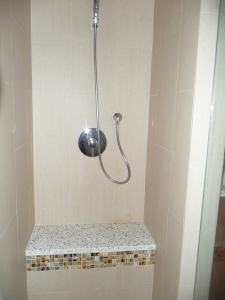
In our experience, we have found that the Corian type products buffed out beautifully when scratched. Natural stone can always be buffed out if it does happen to chip or scratch. I’ve never personally seen an edge chip with natural stone, but I have heard of it. A stone fabricator can apply a hard colored resin and buff that out with the stone to conceal edge damage. The man-made materials that contain glass can chip. This material can also we buffedand repaired.
We have found IceStone to hold up to scratching. On the other hand, we have found the edge of a Vetrazzo counter top to be in constant need of repair due to the little pieces of glass falling out. Very disappointing.
The Green Factor? Natural Stone comes out of the ground so wins the green star in that regard. Where it looses it’s green factor is when we burn fossil fuels to get it to the final destination.
The sealers are anything but green. I’m not proud to admit it, but except for the most dense stone, it’s a necessary evil. Even concrete counter-tops require sealer.
One more quick thought I’d like to leave you with is VALUE. Those of you who have read other posts of mine know that sustainable value is always at the forefront of my design decisions. A beautiful natural stone counter-top will give you more value for your investment than the man-made options , with one exception. The recycled glass tops made by IceStone are beautiful, very desirable and hold their value as well as natural stone if used properly in an integrated design. They are not for the budget conscience and need to be cared for properly.
Do you have experience with solid surface counters that you would like to share? Is there something that you would like to know about these counters that I didn’t cover in my post? Please comment and I will respond.
